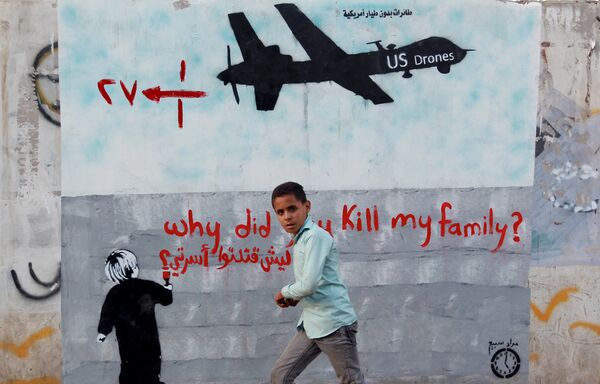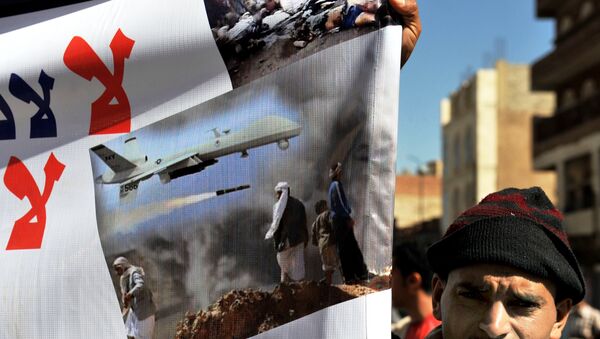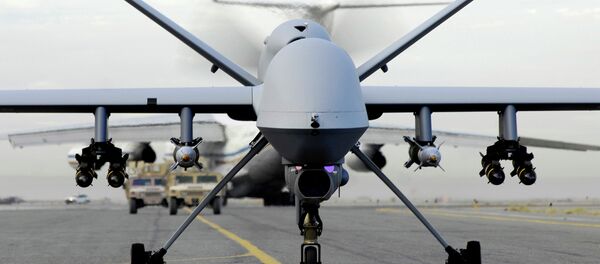However, what's alarming about the deaths is that many appear to have died twice and in over 1,000 cases, innocent people were killed in failed attempts to kill just 41 men whose names appeared on the Kill List.
The Kill List is no ordinary list, it includes the names of individuals targeted by the US Government and selected for assassination. It sounds like something out of a James Bond movie, however in these scenarios there is no stunt double to take the hit for you. Actual people are killed via covert drone operations conducted by the US government and signed off by the President.

What is alarming is that this process is not governed by any judicial review, however even more surprising is that the individuals targeted for assassination appear to have died not once but twice.
This has raised the question that if the selected individual targeted for assassination was not killed in the first attempt, who filled their body bag? An investigation by Reprieve has revealed that 1,147 people have been killed in failed attempts by the US to kill 41 men in Pakistan and Yemen.
For example, 17 men in Yemen were reported killed or targeted multiple times. Missile strikes on these men killed 273 other people and accounted for almost half of all confirmed civilian casualties and 100 per cent of all recorded child deaths.
Each of the 17 men were killed over three times according to official US, Yemen and Pakistani documents, whilst further evidence suggests that at least three of these men are still alive. For example, Qassim al-Raimi, was reported to have been killed over six times, with one of the last reports documenting his death in 2012. However, it appears this suspect is still alive and according to recent reports is a key terrorist recruiter.
In all of these reported killings of terrorist suspects, someone else filled their body bags before they did. Reprieve has listed the several case studies; one was that of eight-year-old, Noor Syed.
On February 14, 2009, a covert drone operation led by the US fired two missiles at a car and three compounds in the Makeen, South Waziristan region. The intended target of the attack was Baitullah Mehsud, the leader of the Tehreek-e-Taliban Pakistan (TTP), the Pakistani Taliban. However the strike missed Mehsud and hit the eight-year-old instead.
Noor's grandfather was distraught, and in an interview after the child's funeral said:
"How can the US invade our homes while we are sleeping, and target our children?"
Reprieve lists several other cases of "mistaken identity."
"Our data suggests that the US fell far short of meeting the first criterion in most strikes. This raises questions about whether it is even possible to meet the second. If the US intelligence is so poor that it is repeatedly missing its target, how can it know whether those killed are civilians?" Reprieve stated in the report.
In a recent investigation into the US drone operation, it has been revealed that they carried out 486 drone strikes in Pakistan and Yemen combined. Overall 4,400 people have been killed in these attacks and the vast majority remain unnamed.
What is the Government's policy on the use of drones for targeted killing? Read our report: https://t.co/yIMNIxHbxA pic.twitter.com/dXVwd2azk5
— Human Rights Ctte (@UKParlJCHR) May 10, 2016
It's not just the US that is under fire for their drone activity, the UK also will face questions if they cannot clarify their targeted drone attacks. The joint committee for Human Rights published a report on May 10, 2016, on the UK's drone killing operations.
The report was launched after the killing of suspect terrorist and British national Reyaad Khan. The committee said that British drone pilots and intelligence officers could face murder charges, if the targeted killing policy is not clarified by the UK government.
"If they're killing people in cold blood outside war zones it's very serious" — @HarrietHarman MP on drone strikes https://t.co/UChe7DTcLU
— Victoria Derbyshire (@VictoriaLIVE) May 10, 2016
In a statement, former Labour deputy leader Harriet Harman MP expressed the view that the need for information on this matter is crucial:
"We owe it to all those involved in the chain of command for such uses of lethal force to provide them with absolute clarity about the circumstances in which they will have a defense against any possible future criminal prosecution, including those which might originate from outside the UK."



